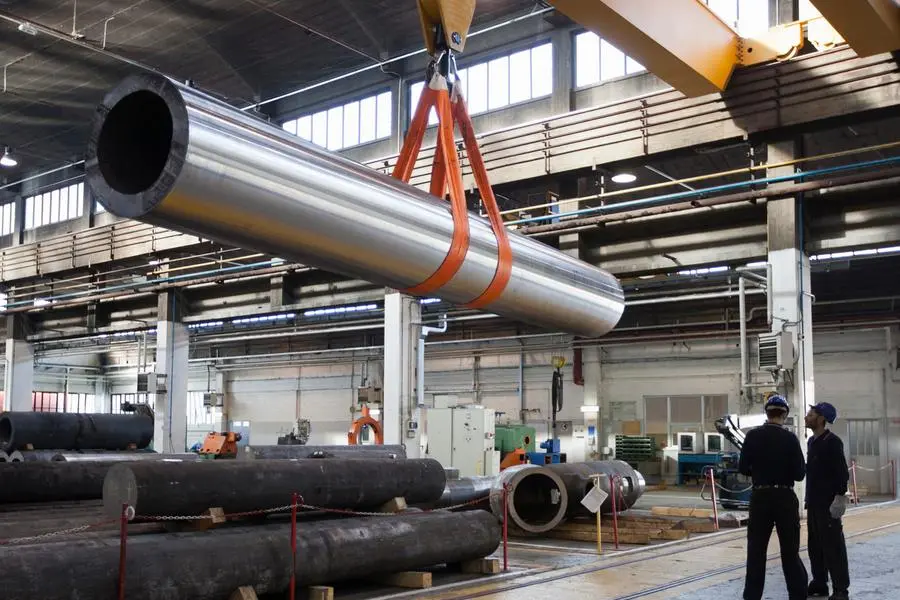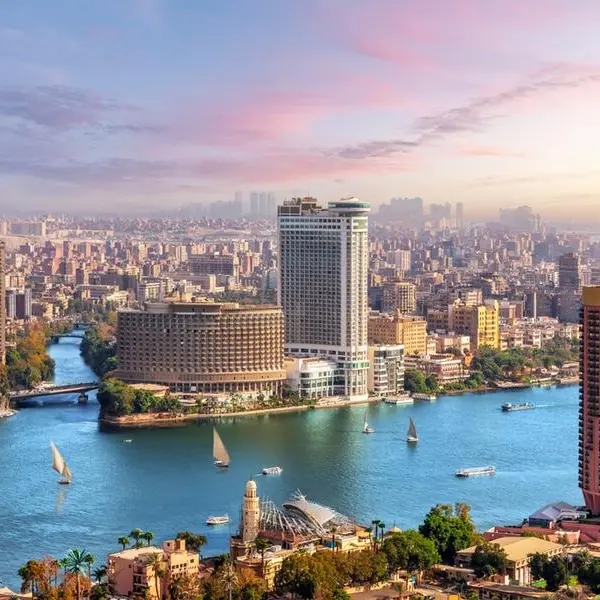PHOTO
Egypt’s iron and steel industry has played a vital role in the country's economic development, serving as a key sector for industrial growth and employment. The industry has a long history dating back to almost a century, as the first iron company was established in 1936, followed by other companies in 1947. After that, the Egyptian Iron and Steel Company was established, followed by private sector firms. Egypt's steel industry has seen significant transformations over the years. Despite challenges, the Egyptian government has been working on supporting the steel industry in order to meet demand and remain competitive regionally.
Economic Contribution
Egypt has been working on developing the iron and steel industry to be a strong, competitive one. In 2022, Egypt’s steel output reached 9.8 million tons, making it the top producer in Africa as well as the second largest producer in the Middle East and North Africa (MENA) region, Fitch Solutions stated in a report issued in April 2023.
In terms of exports, the value of Egypt’s exports of iron or steel flat-rolled products reached $444.215 million during the period from January to August 2023, compared to $260.696 million in the same period of 2022, according to the Central Agency for Public Mobilization and Statistics’ (CAPMAS) monthly bulletin of Foreign Trade Data.
Hanin El-Mahdy, Economist and Asset Management Consultant, tells Arab Finance: "There is a close relationship between the average amount of consumption of iron and steel products and economic growth in each country. The greater the average annual per capita consumption of iron and steel, the stronger the indicator of its size developmental, construction, and industrial projects."
This comes as Egypt’s consumption of rebar increased during 2022 to 7.895 million tons, compared to a consumption volume of 7.344 million tons in 2021, a growth rate of 8%. Moreover, domestic consumption of HRC hot-rolled steel products also increased to 1.655 million tons in 2022, compared to 1.508 million tons in 2021, an increase of 10%, as mentioned by the Steel Network Website.
The iron and steel industry has a number of strengths, yet it faces several challenges. Ahmed Fawzy Hussein, PhD Holder, Assistant Professor in Economics, tells Arab Finance: "One of its strengths lies in its existing infrastructure, including well-established steel producers, mills, and rolling facilities.”
“This infrastructure provides a solid foundation for growth and enables the industry to fulfill domestic demand. Moreover, the presence of a skilled workforce and access to raw materials such as iron ore and coal contribute to the industry's potential for success," Hussein adds.
Meanwhile, the Egyptian steel industry could face challenges such as "outdated production technologies in certain steel plants, inadequate research and development efforts, and limited financial resources for investment and innovation. Addressing these weaknesses will be key to ensuring the industry's long-term competitiveness," Hussein explained. Despite these challenges, the industry still has room for growth.
Future Prospects
Egypt's steel output is expected to reach an average annual growth of 1.5% over the next decade, as government efforts can support the industry and decrease steel imports, as per Fitch's April report.
During the Arab Steel Summit 2023 held in October, Ahmed Ezz, Founder of Ezz Steel, stated that the average per capita consumption of iron is 110 kilograms in Arab countries, compared to 450 kilograms in the world, with the production of the Arab world still representing only 2%, pointing out that these numbers indicate the necessity of developing and increasing production due to the presence of this large market.
The future is promising for the iron industry, especially in Egypt, given the country’s major development renaissance, accompanied by an abundance of energy and deep berths in ports, in addition to the availability of attached lands, all of which are attractive factors for industrial investment, Ezz noted.
This comes as the industry has room for growth, according to Hussein, who explains that “the country's large population and growing urbanization drive a continuous demand for infrastructure development, which requires steel for construction projects, such as buildings, bridges, and roads.” Hussein further highlights Egypt’s potential as a “hub for trade between Europe, Africa, and the Middle East, creating opportunities for the steel industry to serve both domestic and export markets.”
However, the steel industry is facing competition caused by the "inflow of iron at lower prices than production costs, particularly from Turkey, China, and Ukraine," according to El-Mahdy.
The regional iron and steel competition is increasing with the developments in the sector in Saudi Arabia. El-Mahdy says that "they will be able to produce iron at a lower cost as a result of the advancements they experience, which will affect the demand for the Egyptian iron negatively. The more advanced technology, the higher the production and the lower the costs."
Therefore, "the government must lower the import tariffs in order to decrease the prices of raw materials as well as the price of iron to be competitive with other foreign alternatives and raise its exports," El-Mahdy explains.
Hussein points out that the Egyptian government has already started to take measures to develop the steel industry. “The Egyptian government has implemented various measures to support the steel industry. One significant support mechanism is through trade protection policies, such as import tariffs, which aim to safeguard and promote domestic steel production,” he notes, highlighting incentives to attract investments.
Despite challenges and regional competition, the government’s efforts can support the Egyptian steel industry to continue thriving as it competes in regional and global markets. This comes as the industry has room for growth that can boost its economic contribution to the country.
Copyright © 2022 Arab Finance Brokerage Company All rights reserved. Provided by SyndiGate Media Inc. (Syndigate.info).




















